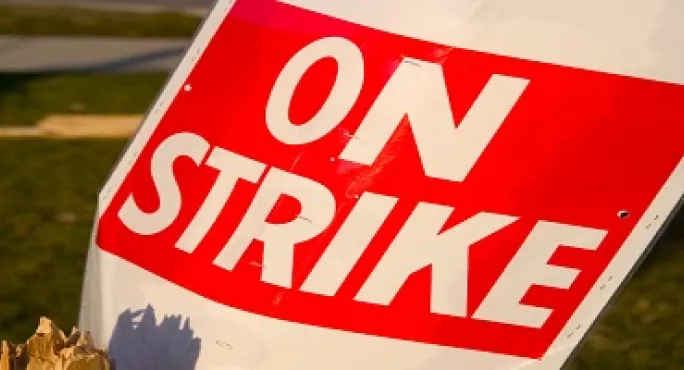College lecturers are on strike again today – our fourth day of strike action since January, and our third period of industrial action since 2016. We are taking strike action in the face of an intransigent management side who have rejected our attempts to reach a negotiated settlement on pay, including numerous offers to suspend industrial action and thus minimise disruption to learners.
Our demand is simple and reasonable – a cost of living pay rise in line with public sector pay policy. When first minister Nicola Sturgeon described the 2 per cent, one year deal offered to the police in England as "a punch in the nose" during First Minister’s Questions last Thursday, she had clearly forgotten that this is precisely what has been offered to the majority of Scottish FE lecturers – to cover a three-year period!
Read more: College staff on strike are 'best-paid in UK', employers claim
More views: 'Why we cannot make lecturers a better offer on pay'
Background: 'We should not be on strike today'
Not about money
We have long known that this fight was not simply about a cost of living pay rise, but about a wider agenda in further education that stretches back to 2015 and the return to national bargaining. We are in dispute over a cost of living pay rise – a pay rise on which we have indicated our willingness to compromise and to accept public sector pay norms – but management have refused to budge.
This is not about money – in the context of a £606 million sector, the £4 million that separates the two sides is a relatively small sum. Management has indicated that there might be more money on the table – sufficient for us to suspend strike action and consult our members – but that this money has strings attached, specifically a hurriedly written shopping list of “concessions” around terms and conditions.
The demands include changes to an agreement on transfer to permanence, which would extend the use of precarious contracts in the sector, the imposition of classroom observation and the inclusion of lecturing staff in a job evaluation scheme. Management claims these measures would produce efficiency savings, but most would actually cost colleges money!
We do not believe that Colleges Scotland is negotiating in good faith. It has not demonstrated the capacity or willingness to reach a negotiated settlement, and instead has issued communications designed to fan the flames. Its communications – notably their recent Parliamentary Briefing – has included what we believe to be inaccurate and misleading information about the dispute, in particular inaccurate figures on the harmonisation payments received as a result of the equal pay dispute in 2017, conflating these with increments that lecturers would have received under local agreements.
At branches around the country and at our national AGM in Perth last week, lecturers have spoken – we have no confidence in Colleges Scotland as the self-proclaimed “voice of the sector” and we demand that the Scottish government intervene. The government promised national bargaining for the further education sector, and through the Fair Work Convention reiterated its commitment to tackling zero hours contracts and promoting a trade union voice. Colleges Scotland is riding roughshod over these commitments while showing zero concern for their staff and learners – we have had enough.
Pam Currie is president of EIS-FELA




